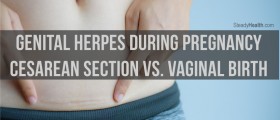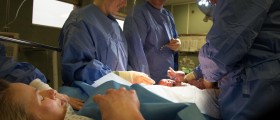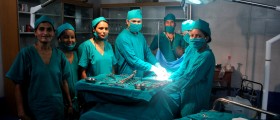
A recurrent outbreak of genital herpes when you are expecting a baby is much less risky than a first outbreak. Studies into the subject showed between zero and three percent risk that herpes will be passed on to the baby, something which could result in neonatal HSV. Because the mother will already have had the chance to develop antibodies, the chance of transmission is much smaller. If you have active herpes lesions on your cervix, in the vagina, or on the outer parts of the genitals, and you are close to your due date, it might still mean your doctor will recommend a c-section. You will discuss the risks of a vaginal delivery with a secondary herpes outbreak vs the risks of a c-section with your healthcare providers.
Your location also matters. In the United Kingdom, cesareans are generally recommended for recurrent genital herpes in the third trimester, while other European countries such as the Netherlands aim for vaginal births in these cases.It will be up to you to weigh the risks and advocate for your choice of delivery if you have secondary herpes.
- www.cdc.gov/std/tg2015/herpes.htm
- www.nhs.uk/conditions/genital-herpes/
- Photo courtesy of NaNo327 by Wikimedia Commons: commons.wikimedia.org/wiki/File:Herpes_genitalis.jpg

















Your thoughts on this
Loading...